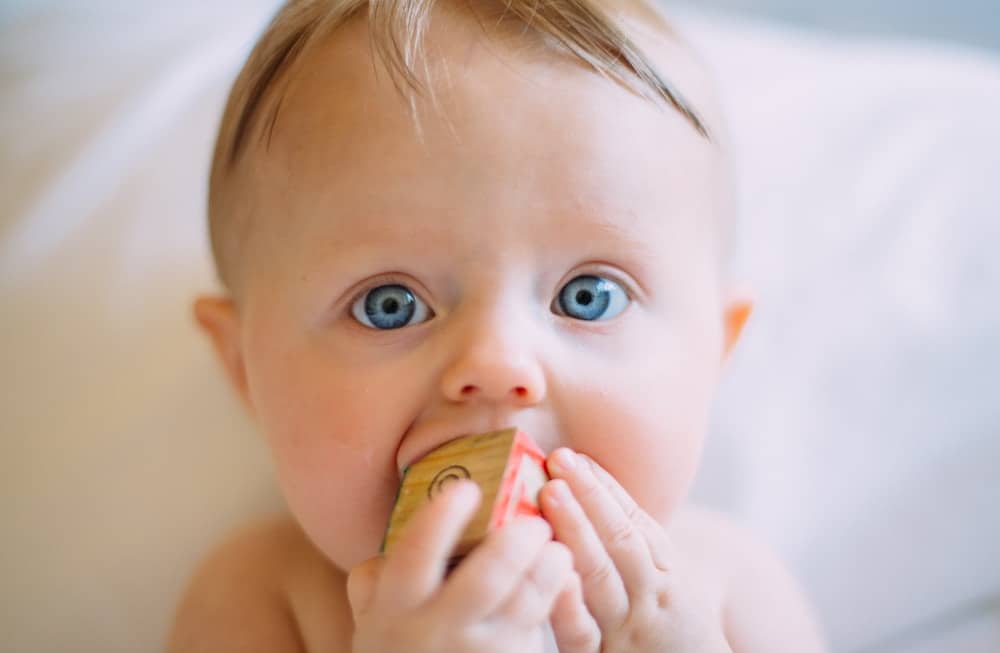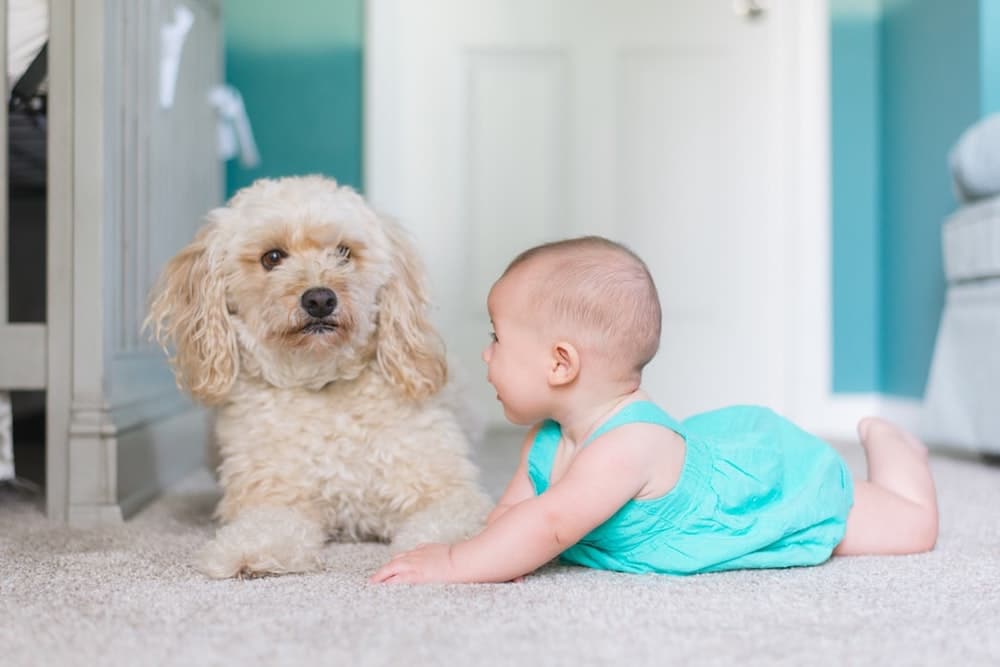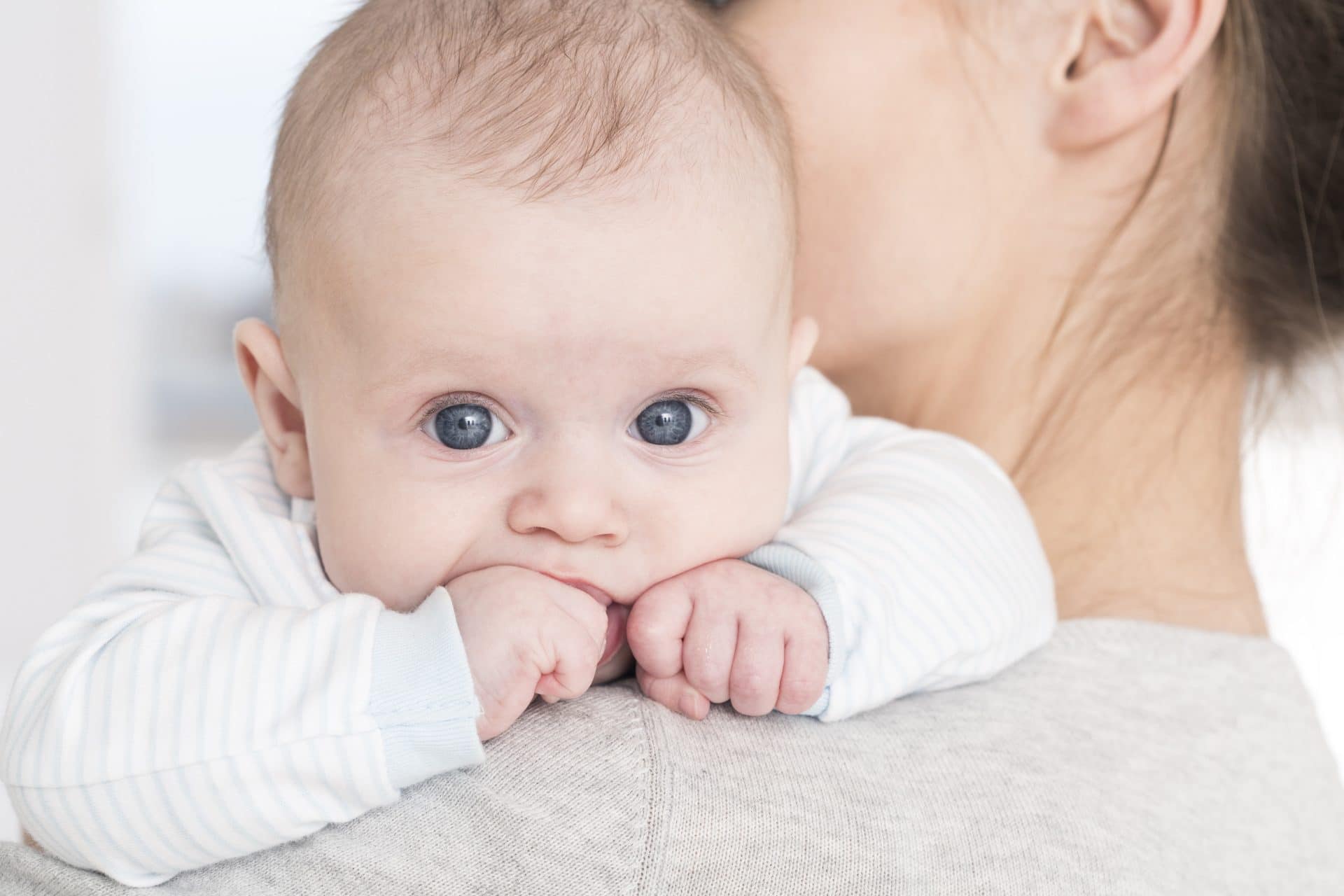Baby vision! Have you ever looked at a baby and wondered what they are seeing, as they look around their new world with curiosity? It turns out that babies ability to see is perhaps not as strong as you thought, with it taking up to two years for their vision to fully develop. Just like learning to walk and talk, babies ability to focus and move their eyes takes time and does not happen overnight.
What do babies see?
This video reveals what baby vision really looks like, and how it develops over the first 12 months of life!
0-4 months
- At birth, babies are not yet able to move their eyes between two images, making it sometimes appear that their eyes are crossed. They are also unableto focus on objects any further than eight to ten inches from their face. Whilst we may think they are gazing intently on an object in the distance, thisis not the case!
- By three months of age, babies should be able to view moving objects with their eyes and also reach out for things, and as their eyes start working together, things like eye-hand coordination begin to emerge
- It is no coincidence that a child’s first smile takes place at a similar time when they are able to focus on their parents’ faces, which usually happens when they are around three months old!
5-8 months

- Did you know that it is not until babies are around five or six months that they start to developan understanding of depth perception, judging how near or far away objects are to them
- A good sense of colour vision is expected to have emerged amongst babies by this age, as in their first few weeks of life they can only see in black, white and grey. Although their colour sensitivity has improved, it is not yet as strong as adults at this age.
- Eye-body coordination skills really kick in around these months, particularly as many babies will be in the stages of discovering crawling.
9-12 months

- It is in this period that many babies have begun crawling, and some even trying to walk! But whilst you may think it is important to encourage your baby to walk as soon as possible, American Optometric Association encourage parents to allow their child to crawl, as it helps the child develop better eye-hand coordination
- By 12 months you might want to watch yourself, as babies perception of distance will have improved drastically, as you begin to see their ability to throw things with precision!
1-2 years old
- By 24 months, baby vision has come on leaps and bounds as not only will their depth perception and eye-hand coordination be well developed, but they will be able to recognise familiar surroundings, pictures and objects
How to Early Detect Vision Problems in Babies?
Before leaving the hospital after birth, babies’ eyes are examined as part of their newborn check, and then after six to eight weeks a GP will examine them again at the postnatal check. But it is important to look out for the following signs, to detect any vision problems as soon as possible:
- Constant eye turning – whilst eye crossing is relatively normal in the early months of a baby’s life, excessive turning could be a sign of a problem with their eye muscle control
- Excessive tearing – we all know babies cry, but if it appears excessive this may be a sign of blocked tear ducts
- Red or encrusted eyelids – like with any adult eye, if there is a lot of redness and potentially swelling around the eye, this may be a signal of an infection
- Presence of a white pupil – if detected this should be flagged to a GP as soon as possible as it could be an indication of eye cancer
How To Improve The Development Of Babies Vision?
With babies eyes developing at a rapid pace it is important that their vision is constantly being stimulated.
This can be done by simply talking, making funny faces, and using playtime to place bold-pattern toys in front of them.
In no time your baby will finally be able to fully see the curious world around them and baby vision will no longer exist!

